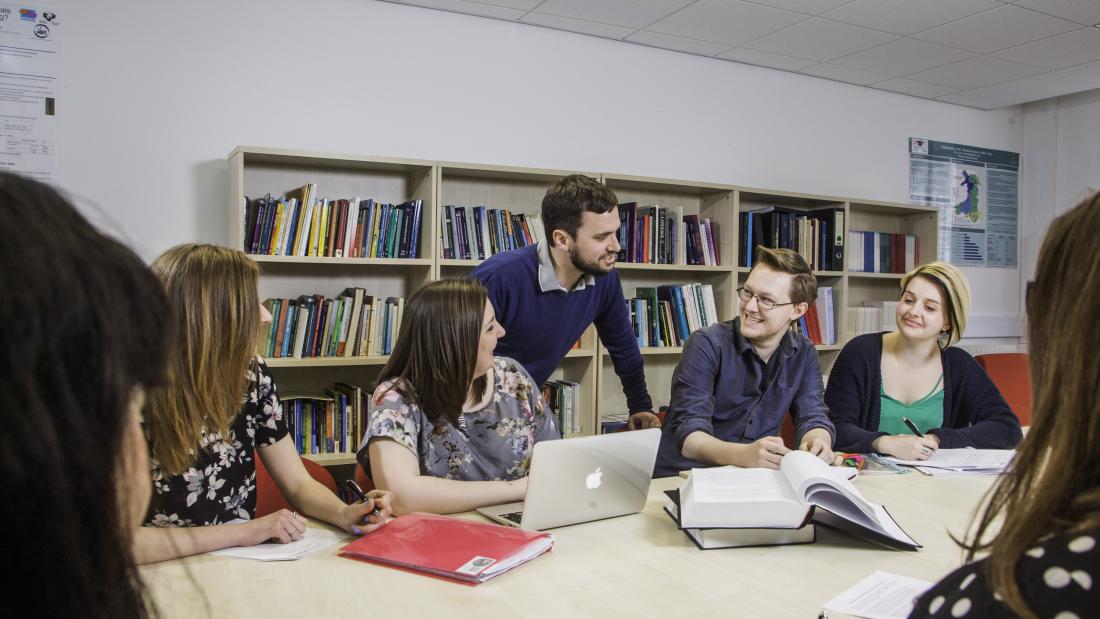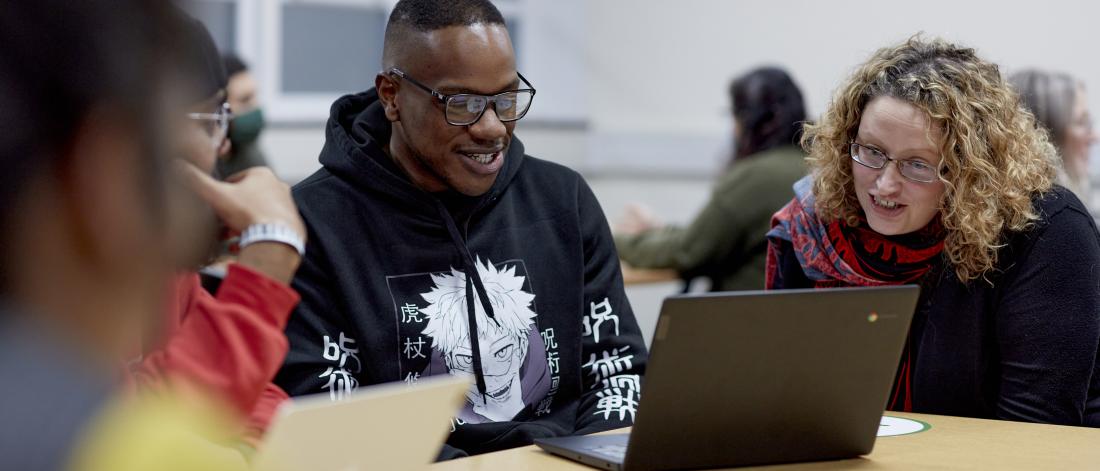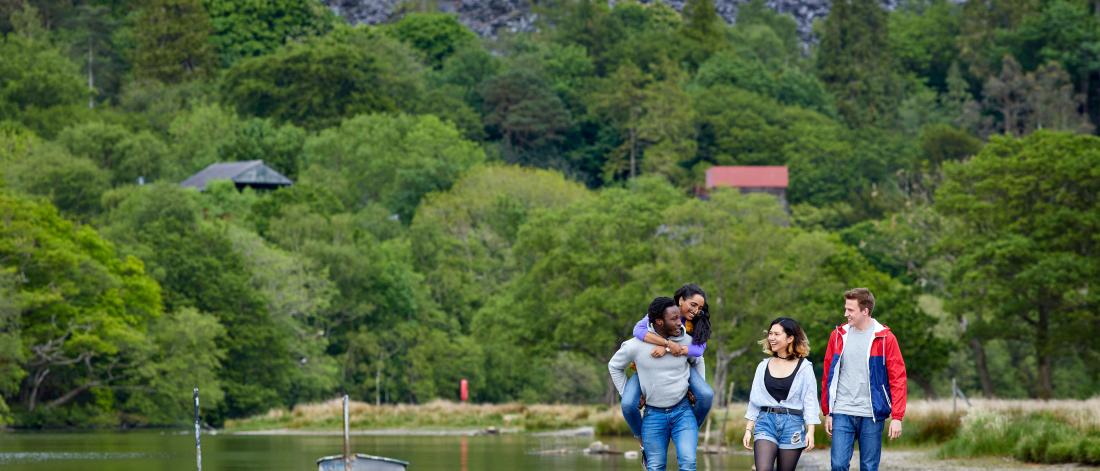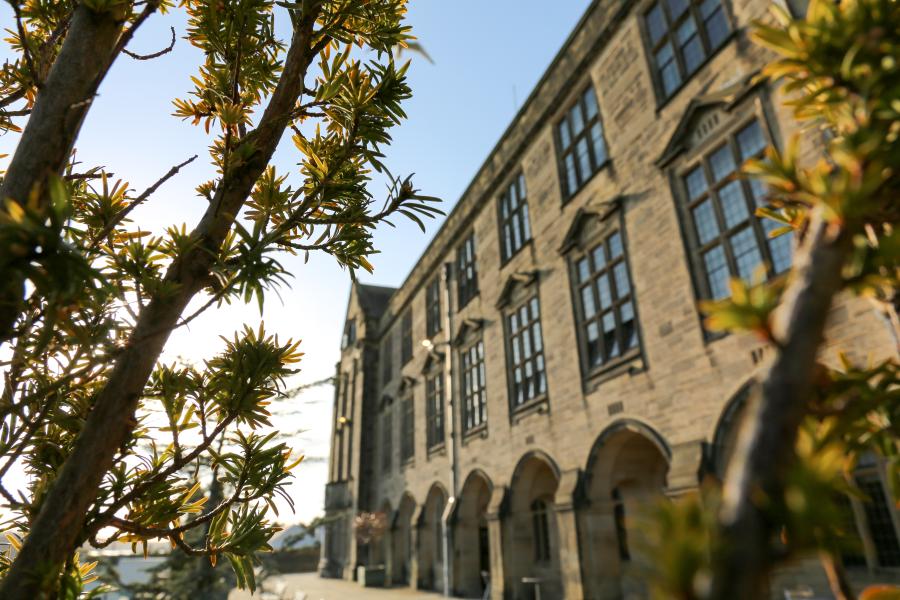Why Study Linguistics?
A degree in Linguistics provides excellent subject knowledge and expertise. You will also develop important transferrable skills valued by a range of employers.
Our curriculum has been designed to introduce students to the core / foundation areas in linguistics (e.g., phonetics, phonology morphology, syntax, semantics, pragmatics and sociolinguistics) in the 1st year, to develop and expand on these topics in the 2nd year along with applied topics such as the history of English, bilingualism, and the functions of discourse, and then we offer a wide range of exciting 3rd year specialized modules that will allow you to explore, develop and refine your research interests and expertise and to focus on those topics and questions that interest you the most. For the 3rd year dissertation project, we offer students the opportunity and support to develop their own projects, with attention given to employability or advanced graduate study. Our staff does its best to accommodate any dissertation topic that can be reasonably supported by our research expertise.
We provide strong and personalized student support throughout the duration of your studies. Our department also has an excellent peer guide support system to help you when you arrive in your 1st year, to get settled in and acquainted with campus life, and a student representative system that provides feedback on our modules, student experience and the quality of our degrees for the duration of your undergraduate degree.
Our students also benefit from a state-of-the-art learning facility which include a professional grade sound / recording studio (our Speech laboratory), an eye tracking laboratory, and an event-related potential (ERP) laboratory and a corpus-linguistics resource facility. We also have audio and video equipment that can be checked out for field work. In addition to these resources, our departmental student society, the Bangor Linguistics Society (BLS), hosts both a study space and an extensive collection of books on Linguistics and English Language in its office which are conveniently located in the same building as our staff offices and seminar room. The BLS also hosts an annual David Crystal Day when Professor David Crystal, the world's foremost authority on the English language gives classes to students in the School.
Linguistics can be taken as a single honours degree or as a joint honours degree with the following courses: English Language, Modern Languages (e.g., Chinese, Spanish, French, German, Italian and Welsh), and Psychology. Students on a single honours Linguistics degree can also take elective modules in a range of subject areas such as English Literature, French, German and Spanish.
All our Linguistics courses can be taken ‘with International Experience Year’ or ‘with Placement Year’.
Student video profile - Maria Stewart
Maria is originally from Chichester, and is studying French and Linguistics. She tells us about her time as a student at Bangor and her hopes for the future.
The lecturers are fantastic - so enthusiastic when teaching that you can't help but feel enthused too!
Do you have a question about life as a Bangor University student? Our ambassadors will be happy to help you find the answer.
They can tell you more about studying here, about the amazing Clubs and Societies we have, and how they made friends and settled in to life at university as a Linguistics student.
If you have any questions about the course, our lecturers are on hand to help. Below are some examples of frequently asked questions. Can you think of any more?
- What are the qualities of a successful Linguistics student at Bangor?
- How can I prepare myself to study Linguistics at Bangor?
- How will I know that Linguistics at Bangor is the right choice for me?
Our Research in Linguistics
Located in North Wales, Bangor University has long been famous for its world-leading research and expertise in the fields of Welsh linguistics and Bilingualism; however our active and diverse staff also have a wide range of internationally recognized specializations and research profiles in the following fields: 1st and 2nd language acquisition, language variation and change, language maintenance, atypical language development, corpus linguistics, language and communication, language technologies / NLP, contested languages, processing and acquisition of prosody and syntax, psycholinguistics, historical linguistics, grammaticalization, Cognitive Discourse Analysis (CODA), Critical Discourse Analysis (CDA), multimodal analysis, temporal language and the nature of figurative language, TESOL and SLA language teaching pedagogy, and formal / functional and usage-based approaches to language.
Our research informs our teaching provision at all levels, with our students benefitting from enthusiastic staff at the cutting-edge of academic enquiry and developments.
Our vibrant research environment is also manifest through various events throughout the year, ranging from individual talks to informal seminars and workshops to large conferences. Many of these are open not just to academic staff, but also to students and to the general public.
You may also be interested in these related subject areas.
You may also be interested in these related subject areas.














